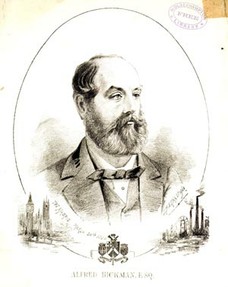 Everyone has Googled their own name. We've probably also used search engines to look for our friends and living family. I defy anyone to tell me that they've never typed a celebrity's name in there! But so many historians never think to check for any mention of their ancestors.
Everyone has Googled their own name. We've probably also used search engines to look for our friends and living family. I defy anyone to tell me that they've never typed a celebrity's name in there! But so many historians never think to check for any mention of their ancestors.
Forum niche experts frequently turned into web-masters too. Their invaluable knowledge became stored on tiny websites buried in the depths of the internet. But the search bots are still scanning them. That information will still turn up in the results.
I'd lost my great-great-great grandparents. Careless of me, I know. They were in their home, where they were supposed to be, in 1861 and 1881. But in between, they were mysteriously missing. Their adult children were minding both the store and the younger ones, but no database was telling me where the parents were in 1871.
After fruitlessly rooting through Ancestry.com and FamilySearch.org, I nearly had to admit defeat. But there was one last avenue to try. I put their names into Google and I was presented with thousands of links. There were a lot of living people with the same names, ranking much higher. I have patience. I started scrolling.
Somewhere back on about page 32 of the search engine results, I found my errant family. A local genealogist had found them in Matlock, where they were partaking of the spa. He had transcribed their names himself from the census records before him. He'd written their names correctly, which was more than the big database sites had done.
Moreover, because he was local, he had included a great deal of information about why people holidayed in Matlock in the 19th century. It painted a beautifully vivid picture, which brought everything to life for me. These were the nuggets of knowledge that makes researching your family history worth the hassle. For a moment, you can almost glimpse the past, and the people stop becoming merely names on the paper.
That isn't the only time that I've struck gold in search engines, while working on my family tree. It takes a lot of stamina to keep trailing through endless pages (almost like going back to the real world archives), but the gems, when they're found, really do shine.


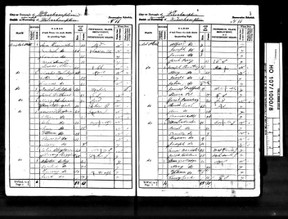 A century is a shining figure in historical studies. Go back 100 years ago and suddenly doors start to open.
A century is a shining figure in historical studies. Go back 100 years ago and suddenly doors start to open.





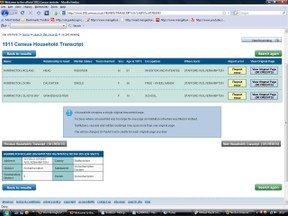 I have fond memories of sitting in a musty room, where the only sounds were the twitching of microfiche dials and the scratching of pens on paper.
I have fond memories of sitting in a musty room, where the only sounds were the twitching of microfiche dials and the scratching of pens on paper.


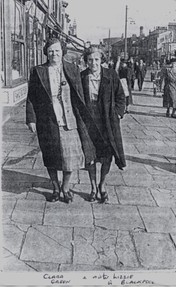 A tree with no branches on it is called a plank. Nothing actually grows like that and this includes family trees. You can practically guarantee bumping into another researcher somewhere along the trunk.
A tree with no branches on it is called a plank. Nothing actually grows like that and this includes family trees. You can practically guarantee bumping into another researcher somewhere along the trunk. Everyone has Googled their own name. We've probably also used search engines to look for our friends and living family. I defy anyone to tell me that they've never typed a celebrity's name in there! But so many historians never think to check for any mention of their ancestors.
Everyone has Googled their own name. We've probably also used search engines to look for our friends and living family. I defy anyone to tell me that they've never typed a celebrity's name in there! But so many historians never think to check for any mention of their ancestors.






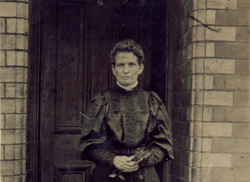

 St Tydecho's Churches in West Waleson 09/03/2014
St Tydecho's Churches in West Waleson 09/03/2014
 Goodies for an Outlander Premiere Partyon 03/06/2015
Goodies for an Outlander Premiere Partyon 03/06/2015
 Holocaust Memorial Day Interview with Rainer Höss, Grandson of Rudolf Architect of Auschwitzon 01/24/2015
Holocaust Memorial Day Interview with Rainer Höss, Grandson of Rudolf Architect of Auschwitzon 01/24/2015
 Romantic Valentine Gifts for an Outlander Fanon 01/16/2015
Romantic Valentine Gifts for an Outlander Fanon 01/16/2015

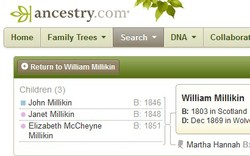
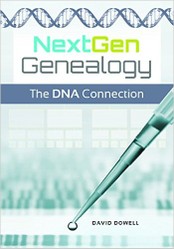
Comments
I hope it was useful too!
Fascinating and fabulous!
Wow Angel, that is interesting! Go you!
It is lovely to have someone famous in the background there, because so many artefacts etc will have been kept on them. Best of all, it's highly likely that a genealogist has already done the family tree for them. Have you looked to see if anyone has previously traced the descendants of Pocahantas? It might save you some work.
Just saw your question ..what did I find so interesting? We found a line to Pocahantas - 12 or so generations back as a grandmother. My husband wants to double check some things and make sure everything matches up and is in check.. but that is what it looks like now. I just went on a field trip to Jamestown VA (1 hr South of us) and it was neat to see all of the historical items there on Pocahantas with my daughter. I explained to her what we had found etc. All very neat.
*high fives* I was there! I didn't have a computer at home at first, so it was sneaked IGI searches at dinnertime or hiring time on the library PC. You got half an hour to get as much printed out as you could for 10p a sheet.
It feels like we're showing our age here, but all of this was only a decade ago!
I really enjoyed reading this article! I too remember the dusty old archives in the bleak days prior to the internet. There is nothing as amazing as seeing an original document signed by a 18th century ancestor and touching (carefully) that same piece of paper. However, I was so excited when the IGI first went online that I spent every lunch time at work frantically writing data down to analyse when I got home ... my "real" work really slowed down for a fortnight but the boss never knew why!
It's great fun, isn't it? I've been doing this for decades now and I'm still not bored.
What did you find out that was so interesting?
Great stuff. My husband and I just did our family trees and found some interesting ancestors. Something I would suggest everyone do. Great article.